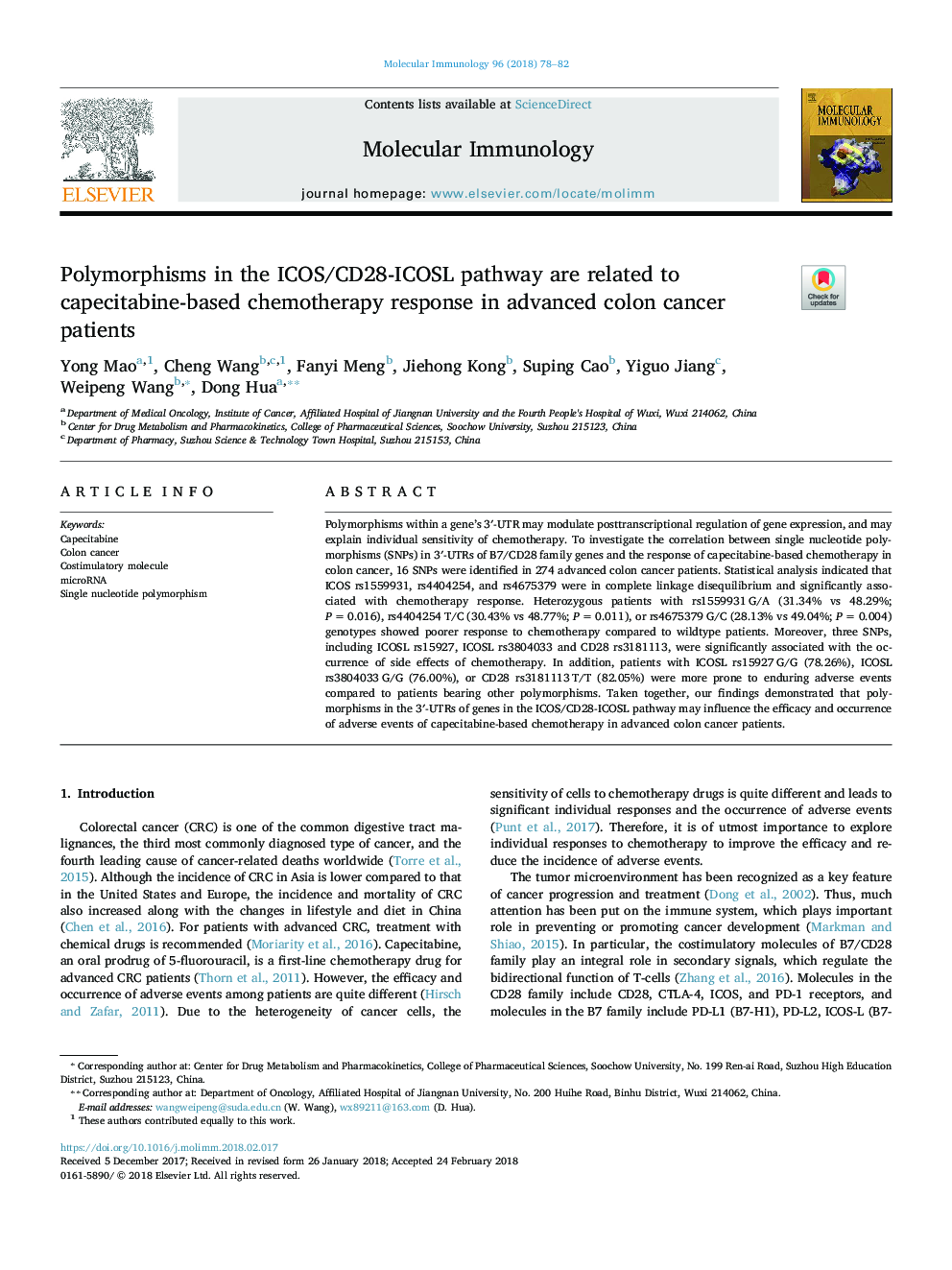| Article ID | Journal | Published Year | Pages | File Type |
|---|---|---|---|---|
| 8648556 | Molecular Immunology | 2018 | 5 Pages |
Abstract
Polymorphisms within a gene's 3â²-UTR may modulate posttranscriptional regulation of gene expression, and may explain individual sensitivity of chemotherapy. To investigate the correlation between single nucleotide polymorphisms (SNPs) in 3â²-UTRs of B7/CD28 family genes and the response of capecitabine-based chemotherapy in colon cancer, 16 SNPs were identified in 274 advanced colon cancer patients. Statistical analysis indicated that ICOS rs1559931, rs4404254, and rs4675379 were in complete linkage disequilibrium and significantly associated with chemotherapy response. Heterozygous patients with rs1559931â¯G/A (31.34% vs 48.29%; Pâ¯=â¯0.016), rs4404254â¯T/C (30.43% vs 48.77%; Pâ¯=â¯0.011), or rs4675379â¯G/C (28.13% vs 49.04%; Pâ¯=â¯0.004) genotypes showed poorer response to chemotherapy compared to wildtype patients. Moreover, three SNPs, including ICOSL rs15927, ICOSL rs3804033 and CD28 rs3181113, were significantly associated with the occurrence of side effects of chemotherapy. In addition, patients with ICOSL rs15927â¯G/G (78.26%), ICOSL rs3804033â¯G/G (76.00%), or CD28 rs3181113â¯T/T (82.05%) were more prone to enduring adverse events compared to patients bearing other polymorphisms. Taken together, our findings demonstrated that polymorphisms in the 3â²-UTRs of genes in the ICOS/CD28-ICOSL pathway may influence the efficacy and occurrence of adverse events of capecitabine-based chemotherapy in advanced colon cancer patients.
Related Topics
Life Sciences
Biochemistry, Genetics and Molecular Biology
Molecular Biology
Authors
Yong Mao, Cheng Wang, Fanyi Meng, Jiehong Kong, Suping Cao, Yiguo Jiang, Weipeng Wang, Dong Hua,
